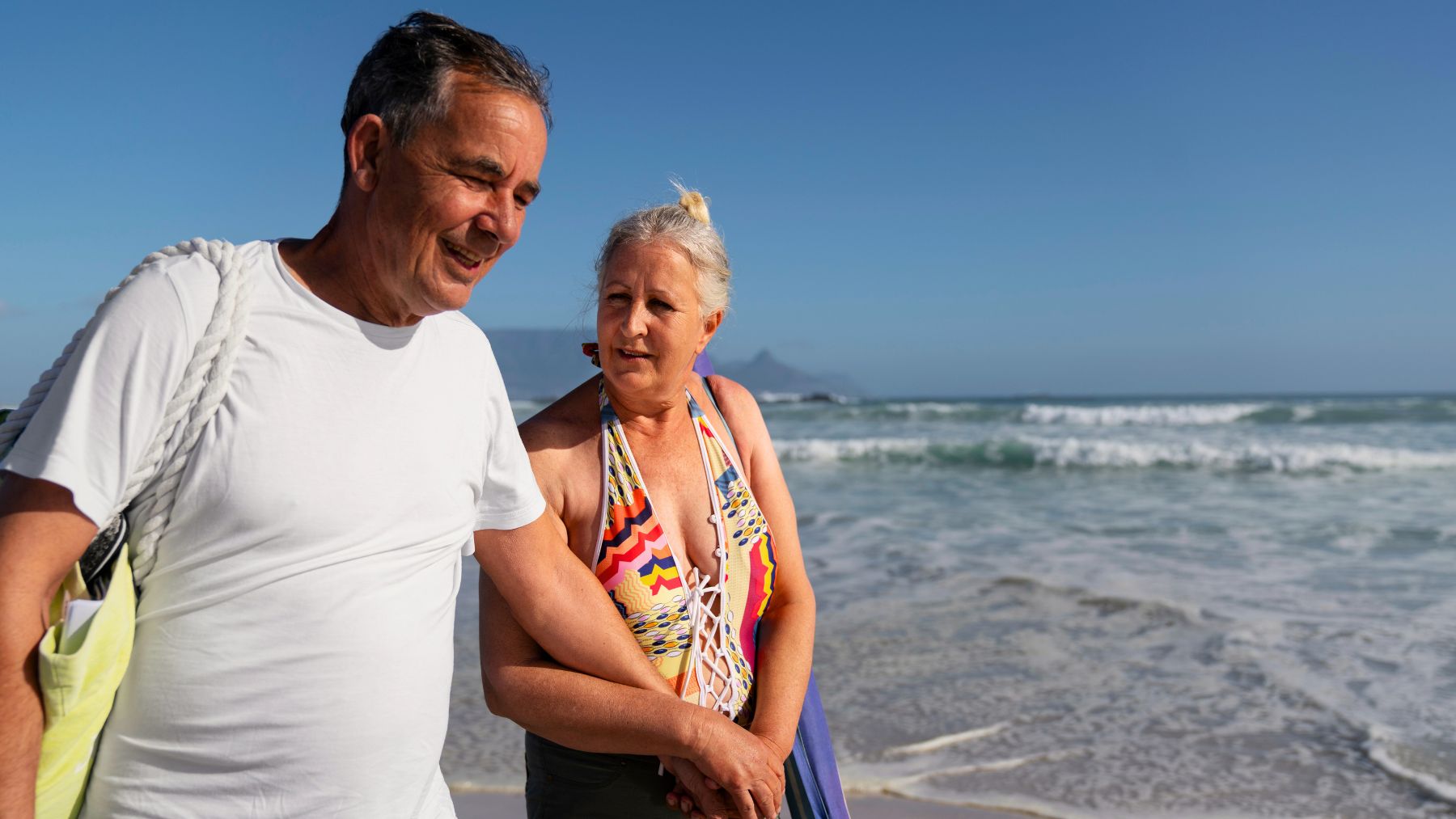Swimming is a great way to stay active and cool when the weather heats up. It supports heart health, keeps joints moving, and helps preserve muscle. For older adults, it also improves balance, flexibility, and mood. But like any activity, it comes with risks, especially if you skip some key safety steps.
One of the biggest hazards can happen before you step into the water. Here, we’ll cover why it’s important to wait after sun exposure to go swimming, how sudden temperature changes affect the body, and other smart ways to stay safe in pools, lakes, or the ocean this summer. Let’s begin.
Wait before jumping in: the top tip for seniors this summer
When you’re out in the sun, your skin and core temperature rise. Jumping into cold water right away can trigger a sudden physical reaction. It’s called “hydrocution”, and it happens when your overheated body is rapidly cooled. This temperature shock can cause dizziness, nausea, a drop in blood pressure, or even fainting. The risk is even higher for seniors due to changes in circulation, medications, or chronic health issues.
If you faint or feel lightheaded in the water, you could lose control and struggle to stay afloat. That’s why giving your body time to adjust before swimming is essential.
After sun exposure, sit in the shade, drink water, and let your body cool down. Before entering the water, splash your arms, neck, and legs gradually to help regulate the transition. Then wade in slowly rather than diving or jumping. It only takes a few minutes, but it can prevent serious consequences.
Other safety tips for older adults in the water
Avoiding temperature shock is a key step, but it’s not the only one. Seniors can enjoy safe, refreshing swims by following a few more basic precautions:
- Swim with someone: Even if you’re confident in your abilities, having someone nearby adds a layer of safety in case something unexpected happens.
- Stay hydrated: It’s easy to forget to drink water while swimming, but you’re still losing fluids, especially in the sun. Bring a water bottle and take small sips regularly, even if you don’t feel thirsty.
- Skip alcohol: It affects balance, coordination, and judgment, and it also dehydrates you.
- Know your limits: Don’t push yourself to swim farther or longer than you’re used to. Fatigue can set in quickly and reduce your ability to react or get back to shore safely.
- Avoid extreme water temperatures: Very cold or very warm water can affect your circulation, blood pressure, and comfort. If the water feels too cold or hot, ease in gradually or skip the swim that day.
- Get your doctor’s okay: If you have a heart condition, limited mobility, or take medications that affect balance or alertness, talk to your doctor before swimming.
Swimming is one of the most enjoyable and low-impact ways to stay active as you age, but it requires some safety measures. Make sure to give your body a minute before getting in after sun exposure.
